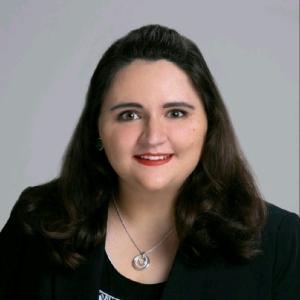Fatiesa Sulejmani, a professor at the Wallace H. Coulter Department of Biomedical Engineering has been recognized as the recipient of the 2024 Women in Engineering (WIE) Faculty Award.
“This is a wonderful honor,” said Sulejmani. “This is the greatest feedback that I could hope to receive to know that my students, and especially the female students within STEM disciplines feel that the classroom environment that I foster is a positive one.”
Each year, WIE presents two awards to engineering faculty who have had a special impact in encouraging and supporting their students’ success.
What sets these awards apart is their tie to the student body: nominations come directly from the students themselves. Every year, female undergraduate engineering students are invited to nominate a faculty member who has had a positive impact on their academic journey.

Fatiesa Sulejmani
With her bachelors in biomedical engineering and her graduate studies in mechanical engineering at Georgia Tech, Sulejmani has walked the path of her students.
“Not only do they see a female engineer out in the world,” she said. “But they see a female engineer who was in their shoes once and who is seeking to develop these personal relationships and to help them achieve their goals as well.”
Even during her time as a student, whether she was tutoring or working as a teaching assistant, Sulejmani loved teaching. She greatly appreciated the instructors and professors that shaped her education. Now as an educator herself, her goal is to “continue that for the next generation” as best she can.
Sulejmani teaches Mechanical and Engineering Design, as well as Biostatistics this semester. Her teaching philosophy is one that prioritizes a hands-on approach. For her, it’s important to create an inclusive and safe space where students can feel unafraid to fail and learn.
“So my goal is really to foster engagement within the lecture environment,” she said. “I try to use humor as well as bringing into context some of my work experience outside of Georgia Tech so they can see the direct application of some of what we are learning within their careers.”
In her teaching, Sulejmani finds great satisfaction in spurring her students’ interests, particularly when it comes to challenging core courses like Biomechanics. She typically begins by pinpointing students' comfort levels with the material. For those facing challenges, Sulejmani offers a supportive hand, providing additional practice materials and guidance.
“To watch students who initially struggled in the prerequisite courses and maybe dislike the subject develop an interest in the subject and become some of my highest performing students by the end of the semester is really rewarding to see,” she said.
But Sulejmani’s interaction with her students doesn’t end in the classroom. She sees it as part of her role to guide her students to achieve their “hopes and dreams” both academically and in the broader context of their lives.
“I consider that to be a part of my job requirement. I don’t consider it going the extra mile,” said Sulejmani. “Even once students are no longer in my class, I try to be that source of support throughout their education.”
Latest BME News
Jo honored for his impact on science and mentorship
The department rises to the top in biomedical engineering programs for undergraduate education.
Commercialization program in Coulter BME announces project teams who will receive support to get their research to market.
Courses in the Wallace H. Coulter Department of Biomedical Engineering are being reformatted to incorporate AI and machine learning so students are prepared for a data-driven biotech sector.
Influenced by her mother's journey in engineering, Sriya Surapaneni hopes to inspire other young women in the field.
Coulter BME Professor Earns Tenure, Eyes Future of Innovation in Health and Medicine
The grant will fund the development of cutting-edge technology that could detect colorectal cancer through a simple breath test
The surgical support device landed Coulter BME its 4th consecutive win for the College of Engineering competition.







